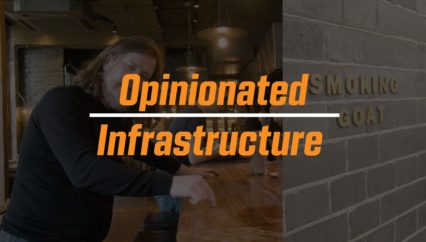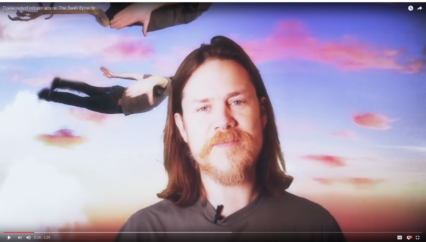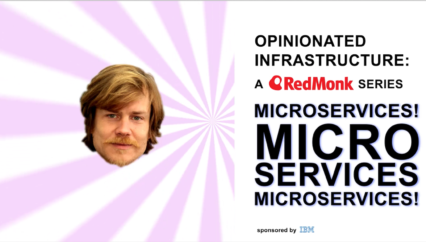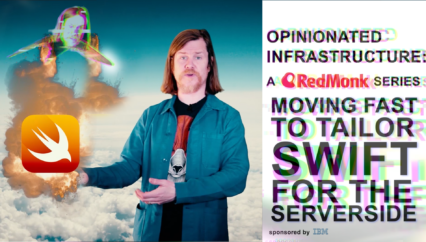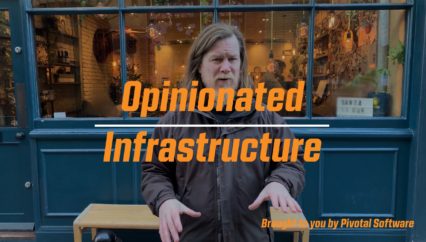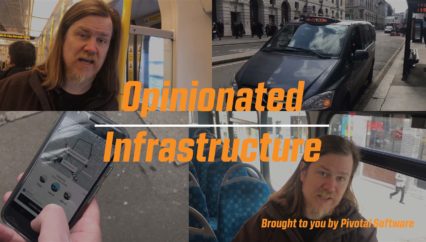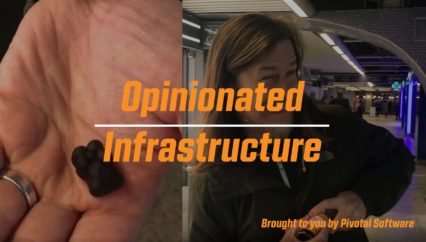Discover how Golden Paths revolutionize software development in this episode of Opinionated Infrastructure. Unveiling the challenges faced by the industry, James Governor emphasizes the need for platform teams to simplify complexity, optimize workflows, and enhance developer productivity. By establishing a cohesive approach to platform engineering, Golden Paths empower developers while ensuring organizational constraints are met. From improved onboarding to reduced manual ticketing and increased automation, this video provides valuable insights for creating an efficient and effective software development environment. Explore the concept of Golden Paths and unlock the potential for streamlined processes and optimized productivity.
This RedMonk video is brought to you by VMware.
Transcript
We’ve made a lot of progress in terms of developing software over the last few years: increasing velocity, getting better as an industry, getting better as organizations. But there’s still an awful lot of work to be done. There’s too much complexity. There are too many different environments and those organizational overheads are really difficult for businesses, in terms of moving forward with effective strategies. Whether developers are productive enough, whether they’re able to, you know, fix that MTTR, that mean time to recovery — these are the sorts of issues that we’re thinking about. Because frankly, it’s very difficult to find enough people within the product teams or within the application teams to have this wonderful world that we’ve talked about of, you know, if you break it, you fix it. Do we have enough database experts? Do we have enough DevOps experts? Do we have enough Kubernetes experts? So what we’re beginning to see is that the overheads there are preventing people, preventing organizations from moving as quickly as they would like. What we need to do and what we’re seeing successful organizations and forward-thinking organizations think about is having platform teams that really pull all of that together: to get a platform team that does the interdisciplinary work, stands up the platform that can make developers more productive. This productivity we talk about is about Golden Paths.
So the platform engineering team is really there to think about, you know, okay, here we’re on a pathway. This is very rigid. We’ve got the cyclists on that side, we’ve got the pedestrians over here. That’s fine. That makes a lot of sense. But sometimes … you say to yourself, hang on, let’s look at how users actually want to work, because we have to respond to that. If developers and practitioners are taking a slightly different approach, well then, we better respond. Because what we want is this experience to be a good experience for people. We don’t want it to be a dictatorial experience because basically, that way, it’s not going to fly because people will always find a workaround. So making the right thing, the easy thing, is really what it’s about. But sometimes you do want to block things off. Look at this beautiful flower meadow that the park is growing and they’ve had to put a fence here because, yeah, it’s one thing to say, sure, we want to make developers productive and respond to the path that they’ve laid out. But on the other hand, you know, sometimes you just have to say, no. This is absolutely what the enterprise or the organization requires. In an environment perhaps where it’s a regulated industry or something like that, developer freedom is great, but organizational constraints are extremely important. And again, that’s what we’re talking about here.
If we’re thinking about something like compliance: regulations, different countries with different data sovereignty requirements, you want a platform team to be managing that rather than leaving it all up to the developer. Developer experience is extremely important and developers can get a lot of work done, but we can’t constantly be asking them to do more and more things. So what we want is an application-centric view of the world that allows product teams to work in these work streams. Or the platform team is doing the platform engineering in that complex system of people, platform and process so that basically everything is managed, everything can be effective and it’s a managed service. That’s what we’re seeing. And I think that there was a bit of a myth over the last few years that, oh, you know, just let developers choose whatever they want. In some cases it did happen. And what you ended up with was a bit of a mess where, sure, the developers had built some great system, perhaps using open source components, cloud services, but then they ended up spending their time maintaining that system as opposed to building new application functionality. So what we want to do is we want to think about making life easier. Golden Paths. Some of the core advantages that we’re going to consider would be better developer onboarding. Too often today, that’s a really gnarly thing. Too many steps, trying to just get the laptop, get the environments installed. It can take a long time and that’s a productivity problem.
Manual ticketing. We would think that in 2023 — here we are — that we would have just get a process of that. But really there’s a lot of manual ticketing and that’s partly just the fact that we’ve got so many different systems that people are using and you do end up with people filling in forms, making requests, and so you want to reduce that as much as possible so that you can make, frankly, everyone more productive. And also you just want as much automation as possible for day two operations. It can’t be Sneakerware. We’re moving in these agile processes of development. We need to be just as agile in terms of the environments that we’re running and managing. And we’re seeing organizations now that are literally rebuilding their environments on a weekly basis. That’s a sort of ephemerality that we need and expect. And that’s all about automation. And again, that’s the responsibility of the platform team. The Golden Path: they touch developers lives, they touch operators lives. And really it’s just about making the business more effective, making application development more effective, making IT more effective.
So what about a business process like developer onboarding? Which can be arduous, frankly, a poor developer experience for developers today that leads to a lack of productivity, lost hours and frankly, a poor developer experience, which is not what we want. Frankly, there’s no reason why developer onboarding should be any harder than jumping on an e-bike. With an effective strategy for Golden Paths and a coherent approach to platform engineering and a solid platform underpinning that, yeah, you can make things easy for people. Developer onboarding should be 30s, not 30 minutes or 30 hours or even 30 days. So here we are. Make the experience easy, but also have some guardrails in place. Here I am in a park. I’m riding along on this e-bike. It’s limiting my speed. It’s making sure that I don’t go too quickly because things need to be safe. Sometimes you just want to move fast. Other times, you need to be secure. So even if I’m pedaling hard, those guardrails are in place. So, you know, we can have an approach where the experience of onboarding is really easy. We’ve got baked in experience, and also it is a platform. So it’s managed for me. The maintenance is all done for me. I don’t need to worry about, oh, hey, you know, am I going to get a flat tire or, are the lights faulty? All of that is done and managed for me as a service, as a platform, and that’s the kind of approach that really sophisticated platform teams are thinking and making the experience much better for developers, much better for users and better for everyone all around. Those are Golden Paths. And this has been Opinionated Infrastructure.
